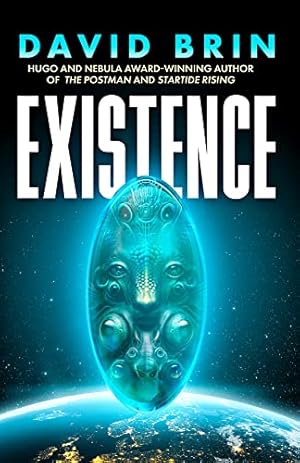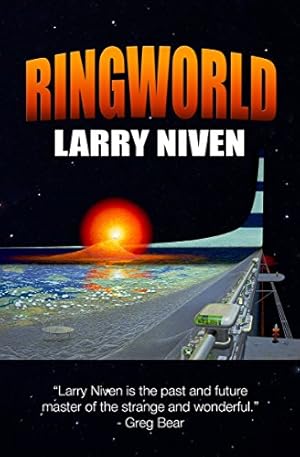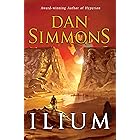Learn more
These promotions will be applied to this item:
Some promotions may be combined; others are not eligible to be combined with other offers. For details, please see the Terms & Conditions associated with these promotions.
Audiobook Price: $17.46$17.46
Save: $9.97$9.97 (57%)
Your Memberships & Subscriptions

Download the free Kindle app and start reading Kindle books instantly on your smartphone, tablet, or computer - no Kindle device required.
Read instantly on your browser with Kindle for Web.
Using your mobile phone camera - scan the code below and download the Kindle app.



 Audible sample
Audible sample Follow the author
OK
Cave of Stars (Macrolife) Kindle Edition
An earth-like human society endures on the environmentally volatile planet of Tau Ceti IV—a rigid community of the faithful that has declared evil the science that caused the homeworld’s destruction. The Church is the absolute power here; obedience and belief the rule. But His Holiness Peter III, the New Vatican’s most powerful figure, himself harbors doubts, engendered by his love for his unacknowledged and illegitimate rebel daughter Josepha. And suddenly there is another assault on his tottering faith—and on the sacred traditions he has devoted his life to uphold. For an emissary, Voss Rhazes, has arrived from one of old Earth’s journeying mobiles—the first off-planet human visitor ever to Tau Ceti—bearing remarkable hated technology that could shred the fragile emotional fabric of a family . . . and bring devastating chaos to their world.
Shop this series
See full series- Kindle Price:$15.98By placing your order, you're purchasing a license to the content and you agree to the Kindle Store Terms of Use.
Shop this series
This option includes 2 books.
Customers who bought this item also bought
Editorial Reviews
Review
"One of SF's most visionary authors." -- --Asimov's Science Fiction Magazine
About the Author
Excerpt. © Reprinted by permission. All rights reserved.
Chapter One
All this began some twelve light-years from the Sun, in the year of 2331, on the fourth planet of Tau Ceti, in the third century after the death of Earth.
Warm wind threw salt spray into Ondro's face. Dark clouds stabbed the sea with lightning. Rain swept across the reef, raced the breakers and dotted the half-moon beach with a million drops. He held his face up to the wash, inhaling land odors from the shower, imagining the continent where all that would have been his went on without him.
He had taken to going out to the beach just before a storm, to be alone when reproaching Josepha. Are you alone now, my love? Do you suffer for what you did? Had she done anything?
He sat down as thunder rolled over the sea. A bolt burned the sand near him, but he felt only a feeble fear at its illusory show of purpose. Those who had arranged his end would not be so easily cheated. The lightning seemed to know enough to avoid that. It both amused and dismayed him that the other exiles preferred inevitable drowning later to a quick, merciful bolt sooner. Hope breathed beneath their daily resignation. They could not help it.
What was reason, after all, but a gray counsel. Tomorrow the ocean might dry up and they could all walk home-and be met halfway by white horses to ride the rest of the way.
He clenched his teeth and shook with the sudden tropical chill as low clouds pulled in over the island. He shivered into sorrow, then lay back and stared up into the hurrying gray masses, seeing Josepha and himself in their first moments together, regarding each other with interest, even wariness, as if each already knew what was to come-she looking tall and slim, long dark hair down her back, he stocky, light-haired, healthy-and felt love for their shy innocence, and despair for the wreck of himself now, for what she was now. Kill me today, he said to the approaching storm. Today.
Her disappearance a week before his arrest, her failure to search him out in prison, had convinced him that she had been a loyal cleric's daughter. Her dark-eyed looks of devotion and tender words had been false from the start, his love for her a leash placed around his neck by the secret police; and instead of the consummation of a marriage night, he had been given only the memories of longing for her pale body.
They had met in their first year at New Vatican University, among the sons and daughters of the professional class-merchants, artisans, engineers, lawyers, and physicians-who had come for their grudging chance at learning, even though their choice of professions was restricted to that of a student's parents.
He had trained in architecture and had planned to return as his father's apprentice. Josepha had studied theology and moral law, hoping to become a lawyer. She had told him that she was being sponsored by a papal official who wished to remain anonymous. Later, she had confided to him that this official was probably her father, but he had been skeptical; the illegitimate children of clerics had been known to make exaggerated claims about their anonymous fathers in the hope of advancement.
In their second year, Josepha had drawn him into a clandestine group that had access to the restricted papal library, where he had learned something of Earth's history, and had come to believe that the papacy had to be abolished, by force if necessary. The very existence of the concealed library, cut out of the rock beneath New Vatican, had convinced him of the urgent need for change. Knowledge that could change the world for the better had been hoarded for three centuries. There was no need for people to work so hard on farms and in the townships. A better and longer life was possible. The endlessly repeated idea of a difficult daily trial as preparation for a life beyond the world began to seem cruel to him, and his faith had been replaced by contempt for the Church. The life it had made for its people was the Way of the Cross, with no reward but death for the common man, while the elite enjoyed temporal power. The fact that the library could be penetrated had convinced him of the regime's fatal weakness.
At the center of the papal library sat a duplicate of the control room from the starship that had brought the original refugees from Earth. The ship itself had been left in high orbit around Ceti IV, but the duplicate control room had been built to transfer from orbit the ship's artificial intelligence and database. Yet millions of books had never been printed out and could be viewed only on aging equipment. The corridors around the central bank were filled with thousands of hastily bound volumes that had been retrieved as they were needed, or as a hedge against failing information storage, or because a cleric had become curious. Pornographic volumes lay tucked away here and there, and sometimes, when Ondro looked for them again, he found they had disappeared. His overwhelming first impression had been that almost no one knew what was in the library anymore and that this amnesia would one day become complete. No one knew if the artificial intelligence still spoke to anyone, but he doubted it; the heavy door to the central control area was locked, and it appeared not to have been opened in many decades.
The official doctrine of the Church was that slow changes were best. The catastrophic example of Earth's brief technological history was to be avoided by educating only a small technical class that would maintain a stable economic government under the Church's moral guidance. In practice, the official doctrine of change meant no change at all.
Product details
- ASIN : B00J90BY2K
- Publisher : Open Road Media Sci-Fi & Fantasy (April 1, 2014)
- Publication date : April 1, 2014
- Language : English
- File size : 2.6 MB
- Text-to-Speech : Enabled
- Screen Reader : Supported
- Enhanced typesetting : Enabled
- X-Ray : Not Enabled
- Word Wise : Enabled
- Print length : 287 pages
- Best Sellers Rank: #1,022,507 in Kindle Store (See Top 100 in Kindle Store)
- Customer Reviews:
About the author

Discover more of the author’s books, see similar authors, read book recommendations and more.
Customer reviews
Customer Reviews, including Product Star Ratings help customers to learn more about the product and decide whether it is the right product for them.
To calculate the overall star rating and percentage breakdown by star, we don’t use a simple average. Instead, our system considers things like how recent a review is and if the reviewer bought the item on Amazon. It also analyzed reviews to verify trustworthiness.
Learn more how customers reviews work on AmazonTop reviews from the United States
There was a problem filtering reviews. Please reload the page.
- Reviewed in the United States on June 22, 2023It’s been over six years since I read “ Macrolife“; that did not present any problems with my enjoyment of this book.
For the first few chapters, we are introduced to a world where the Roman Catholic Church and the Pope runs the show. There’s not much in the way of technology, and you almost wonder if you’re reading the book you expected; stay tuned… You are!
What appears to be a side trip for one of the mobile worlds becomes so much more. The visit to one of the planetary colonies established by a previous mobile world was necessary; they had an obligation to see how their fellow humans were making a go of it. When they find changes everything for both societies.
The author manages to very effectively take this side trip and turn it into a catalyst for the ongoing evolution of his macrolife civilization. There are some big surprises which will catch the reader off guard. The challenges are unexpected and well put together. The characters are memorable, and this is a most worthy book 2 in the series.
VFL
- Reviewed in the United States on May 19, 2013This is a novel about big science ideas. One-hundred kilometer long space habitats, people who live almost forever, and artificial intelligences. It is also about the seemly endless conflict of world views. There are the religious people who struggle to survive, and the people who are very technically advanced and not religious. There is really more to the story than this. It is a very human story with many believable three dimensional characters.
- Reviewed in the United States on April 28, 2017Very good.
- Reviewed in the United States on January 12, 2000I was quite disappointed with this book. It appears that the author had a problem with the Catholic faith and needed to vent his issues in public.
The characters are shallow; without dimension. At each crisis point the reader is left wanting more. The conclusion of the book skips over decades as if to just get it done.
The editorial above compares this book to Dune. For those of us who have read the Dune series, this book will not come close.
- Reviewed in the United States on September 9, 2000I'm going to swim against the tide of earlier reviews here. I found Zebrowski's CAVE OF STARS engaging, and I enjoyed it for some of the very reasons the reviewers below disliked it.
I don't feel Zebrowski has constructed a polemic against the Catholic Church, or even against religion in general. Rather, he is exploring ways in which humanity defines, and sometimes perilously over-defines, what it calls "reality." Both cultures in this book, the primitive and the advanced, have lost themselves within fantasy constructs. That these faux-realities come into such violent conflict is intriguing; that they should so inevitably ensure one another's destruction, both physically and psychologically, held my attention from page Alpha to page Omega. Zebrowski dangled tidbits of hopes for survival throughout; then he gracefully snatched each away, to make his point and to make readers' hearts sink. His story does rush forward at the end ... showing the surviving humans rushing on toward new hopes, and toward one more round of fantasy construction. The conclusion leaves the reader (well, me at least) with the question: Is it our foolish, unceasing hopes for creating Reality in our own image and likeness that make us, as a race, so pathetically hopeless?
Zebrowski's writing rests firmly within the tradition of SF as a Literature of Ideas. That approach always runs the risk of subordinating character development to plot flow, but in this story ... in which faux-realities battle for the hearts and minds of the characters ... Zebrowski plays his pawns masterfully.












































